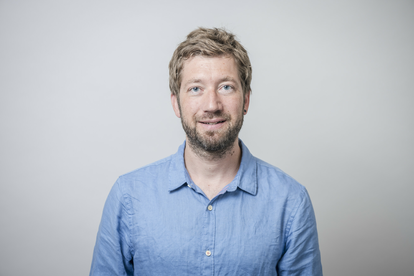UN Secretary-General António Guterres is hosting the "Summit of the Future" in New York this fall. With a pact for the future, he wants to revive the 2030 Agenda and put the world on a sustainable development path. Governments and civil society are showing their commitment during the preliminary discussions on the document – fully knowing that this is the last chance to avoid missing the sustainability agenda completely.
The UN General Assembly's SDG Summit in the fall of 2023 showed the world how far off course the implementation of the 2030 Agenda for Sustainable Development was at the halfway point. UN Secretary-General António Guterres used clear words: The world is "out of control." Wars are raging in many places. Democracy is coming under increasing pressure. Inequality, hunger and the climate crisis are worsening. And the rifts between East and West and North and South are deepening. At the Summit of the Future a year later, UN chief Guterres now wants to turn the tide. Member states are to adopt a "Pact for the Future." The aim is to bring the global community back together, finally take action and get the 2030 Agenda "back on track."
Countries had already agreed on the key topics by the end of 2023: financing for development, peace and security, innovation and digital cooperation, youth and the renewal of multilateral governance. And the process seems promising: In January 2024, the lead negotiators from Germany and Namibia published a draft of the pact, allowing states and groups of states to provide their feedback. At the UN Civil Society Conference in Nairobi in May 2024, civil society actors (NGOs, community-based organizations, youth groups, academia and the private sector) from around the world formulated their expectations of the pact. In Switzerland, civil society organizations such as Alliance Sud, the 2030 Agenda platform and Helvetas had the opportunity to make their suggestions directly to the Swiss negotiating delegation on its way to New York.
Their concerns were heard. On May 15, 2024, Germany and Namibia presented a significantly revised and improved version of the pact. The negotiators offered assurances that they had responded to the diverse expectations of the states and civil society in the best possible way. The reactions of the countries, from the EU as well as from poorer countries of the G77 coalition of developing countries at the United Nations, were predominantly positive – with a few exceptions from Russia and Egypt, for example. Many delegations expressly welcomed the fact that the draft was concise and balanced as well as ambition- and action-oriented.
Human rights remain the compass
With the Pact for the Future, the global community wants to underline the relevance and necessity of the 2015 sustainability agenda. The pact makes it clear that human rights are at the heart of all efforts to eradicate poverty, combat inequality and "leave no one behind." It reaffirms the principle of equal rights and self-determination of peoples as well as the obligation to respect the territorial integrity or political independence of a state and to refrain from the threat or use of force. Obligations under international law, such as international humanitarian law and the International Refugee Convention, continue to guide action. Among other things, the international community wants to use the pact to:
- Promote sustainable lifestyles and the circular economy as a path to sustainable consumption and production patterns;
- Take steps to ensure that the private sector contributes to sustainability and the protection of our planet, including by strengthening accountability and credible reporting procedures;
- Prevent illicit financial flows and fight corruption, tax evasion and tax avoidance, and strengthen cooperation on international tax policy at the UN level;
- Transform the global food system so that everyone has access to safe, affordable, environmentally sound and nutritious food;
- Maximize the positive contributions of safe, orderly and regular migration and improve and ensure the protection of all people on the move;
- Address the risks to the stability and cohesion of our societies posed by disinformation, while respecting the right to freedom of expression;
- Address the growing imbalance between military spending and investment in sustainable development and peacekeeping;
- Stick to the 0.7 percent target for official development cooperation and increase support for developing countries in the joint fight against climate change;
- Make very rich people (with an above-average climate footprint) more responsible by means of a global minimum tax
Focus on young people and the next generation
Hardly ever before has such an important role been assigned to young people in an official UN document. The pact explicitly warns that our actions today have an impact on the well-being and opportunities of future generations. The current version states: "Today's generation of young people is the largest in history, with most of them living in developing countries. [...] We recognize that they and future generations will have to live with the consequences of our actions [...]. We commit to transformative investment in and engagement with young people at national and international levels to ensure a better future for all."
Let's hope that the declaration is not weakened by September and that the Future Summit in New York is a success. After that, it must be ensured that the document does not remain a dead letter but actually becomes a guideline for action for governments.
At the moment, the wars in Gaza and Ukraine are very much in the spotlight. Global challenges such as growing hunger, forgotten crises and injustices, species extinction and the climate are easily forgotten. However, it is important not to lose sight of "the big picture" and the "longer-term vision" of a liveable, sustainable and just development. The Pact for the Future should serve as a compass for governments and for all of us. The Pact for the Future deserves a future.


